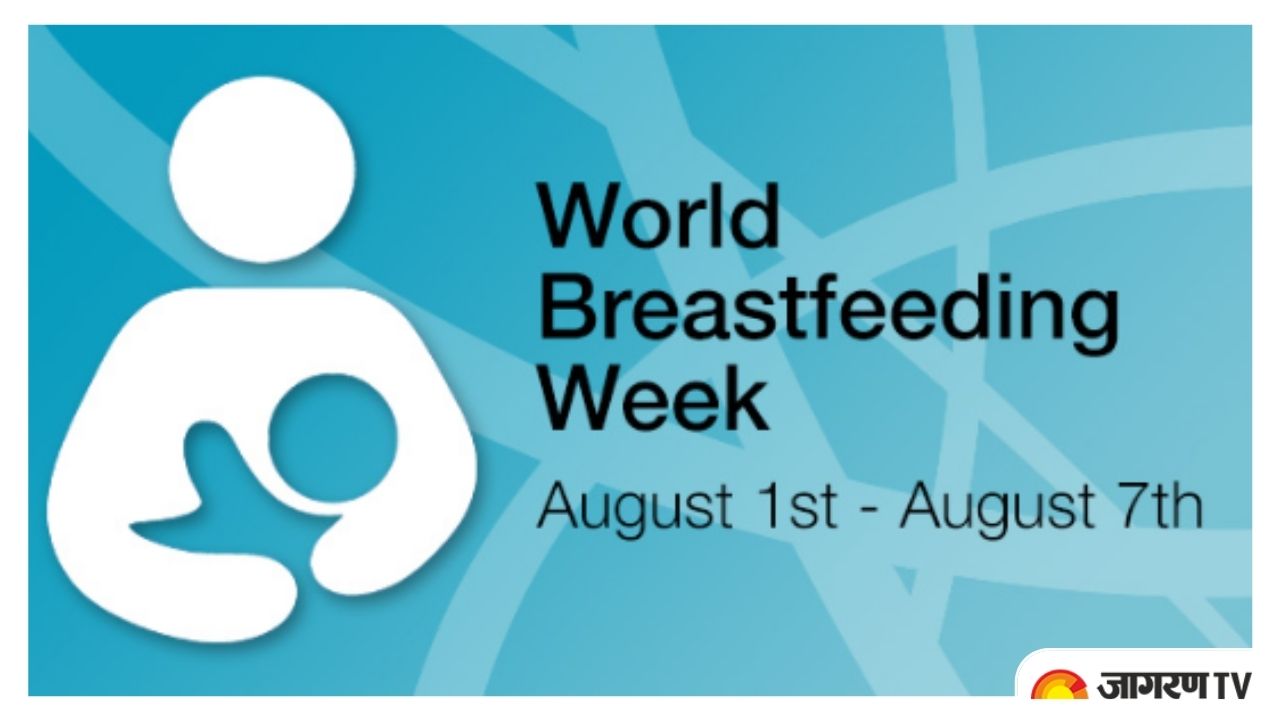World Breastfeeding Week: Know Date, History, Significance and theme

Breastfeeding is the most significant part of the growth of a newborn baby. According to the World Health Organisation (WHO), babies are compulsorily required to be breastfed exclusively for six months since the time of their birth and later should be allowed for consumption of different food items after six months.
The World Breastfeeding Week is observed every year for a week starting from 1st August. The soul motif for observing this week is to generate awareness among new mothers (and fathers) and enhance infant health throughout the world. To promote awareness and support breastfeeding, this initiative was started in August 1990 by government policymakers, UNICEF, WHO and other concerned organisations.
History of World Breastfeeding Week
The World Alliance for Breastfeeding (WABA) was established in 1991, to act on the Declaration to Protect, Support, and Promote Breastfeeding which was adopted in 1990. As a part of this Action Plan, WABA put forward the concept of a globally integrated breastfeeding plan for its promotion. Although the idea was planned to be celebrated only for one day, it later turned into a week of celebration. The week is observed as World Breastfeeding Week and celebrated from1-7 August. The first International Breastfeeding Week was observed in 1992. The week observes the promotion of breastfeeding in more than 100 countries.
Nutrients in Breastmilk
Breastmilk contains all the nutrients the baby requires for proper growth and development.
These nutrients include:
Free water
Proteins – Protein accounts for 75% of the nitrogen-containing compounds and the non-protein nitrogen substances include urea, nucleotides, peptides, free amino acids and DNA.
Fats – Essential fatty acids and long-chain polyunsaturated fatty acids
Carbohydrates – The principal carbohydrate of human milk is lactose.
Minerals, vitamins, and trace elements.
Significance of Breastfeeding
The first few days after the baby is born, breasts produce a thick yellow fluid known as colostrum. This golden-yellow substance is considered to be highly beneficial for the baby as it contains immunoglobulin that helps to build the baby’s immunity. It protects the baby from a severe cough and cold, fever and infections. This is why new mothers are advised by doctors to start breastfeeding the baby as soon as possible after giving birth.
Apart from colostrum, breast milk contains a variety of antibodies that help the infant fight against bacteria and viruses. It has been studied and proven that babies that have been breastfed regularly for the initial six months, do not show any symptoms of ear infections, diarrhoea or respiratory issues. Breastfeeding remarkably reduces the risk of allergies and asthma in newborn infants.
It is also proven by organisations like WHO that breastfeeding not only protects the baby from several diseases but at the same time it also decreases the threat of mothers from developing breast cancer, type 2 diabetes, ovarian cancer and heart disease. According to statistics, every year 20,000 maternal deaths could be avoided by breastfeeding.
World Breastfeeding Week Theme
For the year 2021, the theme for World Breastfeeding Week is ‘Protecting Breastfeeding: A Shared Responsibility.’ The reason for this theme is to generate awareness among people of the benefits of breastfeeding and its importance.









